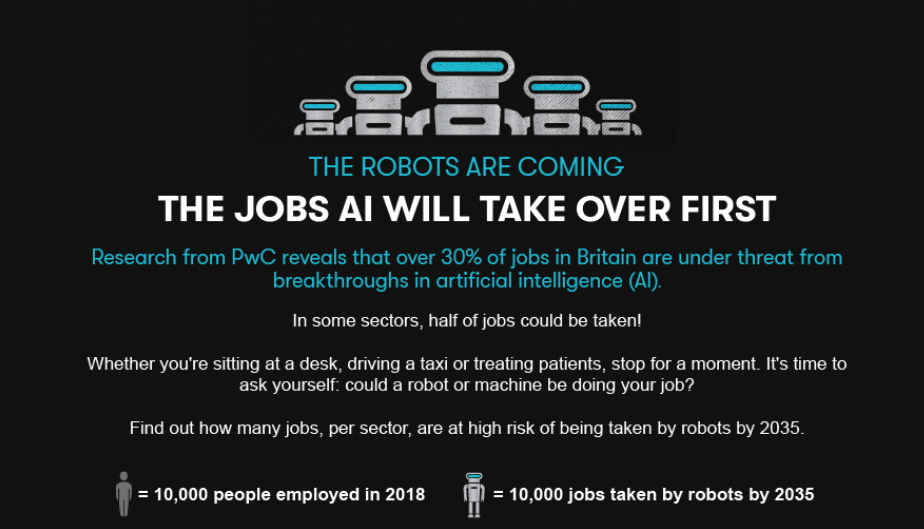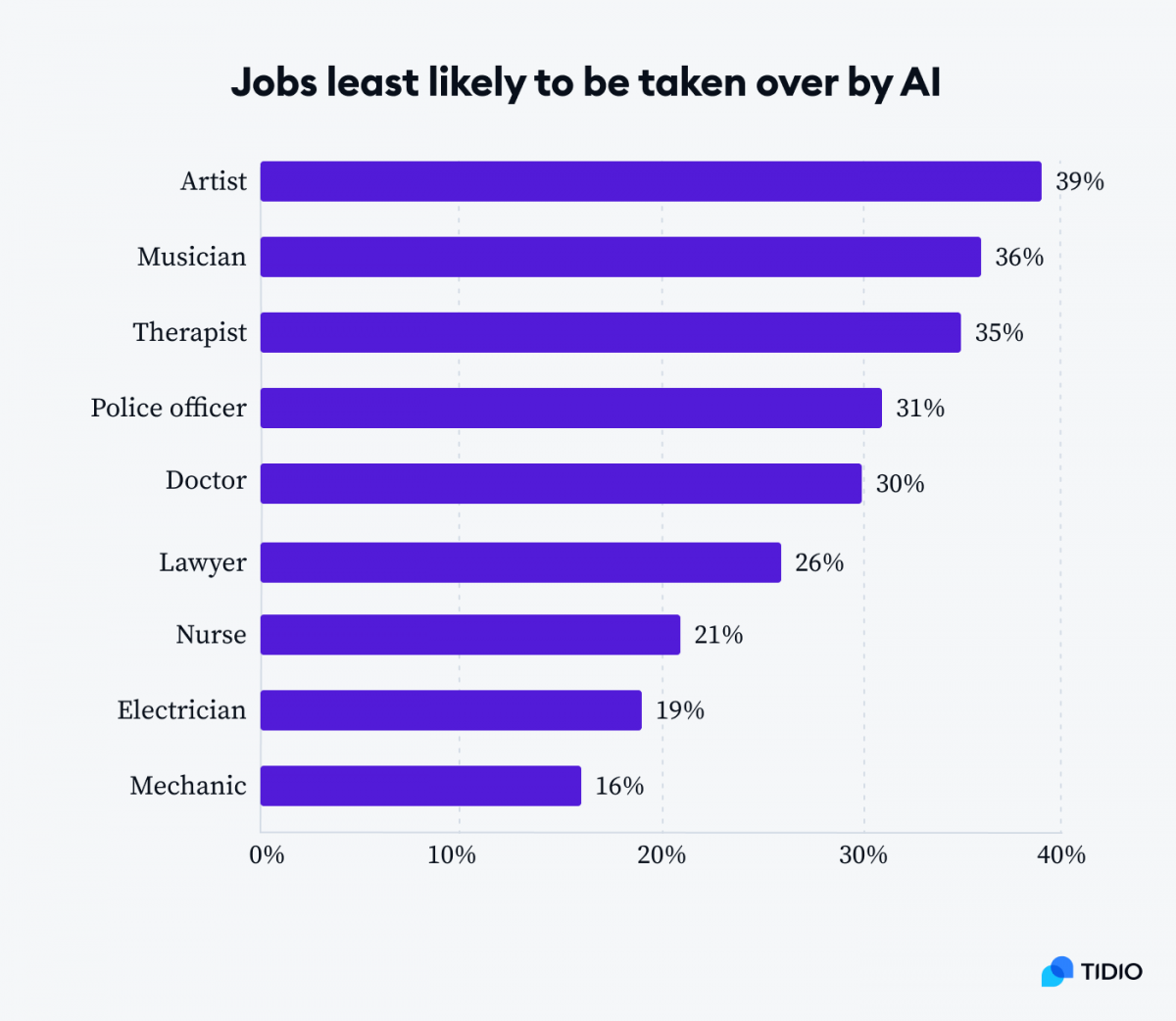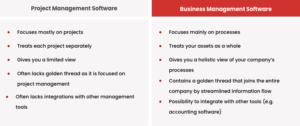To prevent AI from taking over jobs, invest in continuous education and focus on enhancing human-AI collaboration. Encourage policies that promote job creation in tech-driven industries.
AI technology is rapidly evolving, and its impact on the job market is significant. Many fear that AI could replace human jobs, but there are ways to mitigate this risk. Emphasizing continuous education allows the workforce to adapt to new technologies.
Upskilling employees ensures they remain relevant in an AI-driven world. Promoting human-AI collaboration can lead to more efficient and innovative solutions. Policymakers should focus on creating new job opportunities in emerging tech sectors. By taking these steps, we can harness AI’s potential while safeguarding employment.

Credit: www.netimperative.com
AI And Job Displacement
The rise of AI technology brings both excitement and concern. One significant worry is job displacement. Many fear that AI could take over jobs, leaving people unemployed. Understanding the current landscape and future predictions is crucial. This helps to find ways to prevent AI from taking over jobs.
Current Landscape
Right now, AI is changing many industries. It can perform tasks quickly and efficiently. Jobs in customer service, manufacturing, and data entry are most at risk. AI chatbots handle customer queries, while robots work in factories. This has led to some job losses already.
| Industry | Tasks by AI | Risk Level |
|---|---|---|
| Customer Service | Chatbots | High |
| Manufacturing | Robots | High |
| Data Entry | Automated Software | Medium |
Future Predictions
Experts predict that AI will become more advanced. More complex jobs may be at risk. For example, AI could impact jobs in healthcare and finance. It may analyze medical data or handle financial transactions.
- AI could affect healthcare jobs.
- It might take over financial analysis tasks.
- Creative jobs like writing and art could also be impacted.
Despite these predictions, new jobs will also emerge. Jobs requiring human creativity and emotional intelligence will be safe. Teaching, social work, and creative fields like art and writing will still need humans. People must adapt and learn new skills to stay relevant.
By focusing on skills that AI cannot replicate, we can prevent job loss. Emphasizing human creativity and emotional intelligence will be key. This will help create a balanced future where AI assists rather than replaces us.
Reskilling The Workforce
Artificial Intelligence (AI) is changing the job market. To keep jobs safe, we need to reskill our workforce. This means teaching workers new skills. These skills will help them work alongside AI. Let’s explore how training programs and government initiatives can help.
Training Programs
Training programs are crucial for teaching new skills. Many companies offer these programs to their employees. These programs can include:
- Online courses
- Workshops
- Mentorship sessions
Online courses are flexible and accessible. Workers can learn at their own pace. Workshops provide hands-on experience. They allow workers to practice new skills. Mentorship sessions pair workers with experienced guides. This one-on-one learning is very effective.
Government Initiatives
Governments play a key role in reskilling the workforce. They can create policies and fund programs. These initiatives can include:
- Grants for education
- Public training centers
- Tax incentives for companies
Grants for education help workers afford new training. Public training centers offer free or low-cost courses. Tax incentives encourage companies to invest in reskilling their employees. This support helps workers stay relevant in the job market.
Promoting Human-ai Collaboration
AI is becoming a big part of our world. But people worry it might take their jobs. Instead, we can work together with AI. This way, we can use AI to help us, not replace us.
Augmented Intelligence
Augmented Intelligence means using AI to help people work better. AI can do simple tasks. This lets humans do harder tasks. This teamwork makes work faster and smarter.
Here are some ways to use Augmented Intelligence:
- Data Analysis: AI can look at data quickly. Humans can then make smart choices.
- Customer Service: AI can answer easy questions. Humans can help with harder ones.
- Manufacturing: AI can do simple jobs. Humans can fix problems and improve systems.
Co-working Models
Co-working Models are ways for humans and AI to work together. This makes work better and safer.
Here are some co-working models:
- Assistive AI: AI helps humans with tasks. It does not replace them.
- Collaborative Robots (Cobots): These robots work with humans. They help with heavy lifting and precise tasks.
- Decision Support Systems: AI gives suggestions. Humans make the final call.
Co-working models can change how we work. They make jobs safer and more fun.
| Task | Human Role | AI Role |
|---|---|---|
| Customer Support | Handle complex issues | Answer simple queries |
| Data Analysis | Make decisions | Analyze data |
| Manufacturing | Fix problems | Perform repetitive tasks |
These methods show how humans and AI can work together. This teamwork can make jobs better for everyone.
Innovative Job Creation
Innovative job creation is key to preventing AI from taking over jobs. Creating new jobs can balance the rise of AI. We need to focus on emerging fields and tech-driven opportunities. This approach ensures a stable job market.
Emerging Fields
Emerging fields offer new job opportunities. These fields include green energy, biotechnology, and space exploration. They require human skills and creativity.
Here are some examples of emerging fields:
- Green energy: Jobs in solar and wind power.
- Biotechnology: Careers in genetic research and medical advancements.
- Space exploration: Roles in satellite technology and space travel.
These areas need workers who can think and adapt. AI cannot replace these human skills.
Tech-driven Opportunities
Tech-driven opportunities are another way to create jobs. As technology grows, new jobs appear. These jobs often support or improve technology.
Here are some examples of tech-driven opportunities:
- AI ethics: Jobs focused on the ethical use of AI.
- Cybersecurity: Roles in protecting data and online systems.
- Robotics: Careers in designing and maintaining robots.
These positions need human oversight and decision-making. AI can assist but not fully replace humans.
Skill development is crucial. Workers must learn new skills to fit these jobs. Training programs and education can help. Governments and companies should invest in these areas.
Regulatory Measures
Regulatory measures are essential to prevent AI from taking over jobs. Governments and organizations need to implement specific rules and guidelines. These measures ensure a balanced integration of AI in the workforce.
Labor Laws
Labor laws must adapt to the AI-driven market. Existing laws should protect human workers. They should ensure fair wages and work conditions.
New laws can include:
- Limits on AI-driven job automation
- Rights to retraining programs
- Protection against unfair job displacement
Governments can create incentives for companies to employ human workers. They can also penalize excessive automation. This ensures a fair distribution of jobs.
AI Governance
AI governance involves creating frameworks to control AI use. It ensures AI systems are transparent and accountable. AI governance can include:
- Ethical guidelines for AI development
- Regular audits of AI systems
- Transparency in AI decision-making processes
Governments should establish AI regulatory bodies. These bodies monitor AI usage. They ensure compliance with ethical standards.
A table can help illustrate key aspects of AI governance:
| Aspect | Description |
|---|---|
| Ethical Guidelines | Ensure fairness and transparency in AI |
| Regular Audits | Check AI systems for compliance |
| Transparency | Make AI decision-making processes clear |
Effective governance helps build trust in AI systems. It ensures the technology benefits everyone.

Credit: www.tidio.com
Educational Reforms
Educational reforms can help prevent AI from taking over jobs. By updating our education system, we can prepare students for the future. This involves focusing on key areas such as STEM education and lifelong learning.
Stem Education
STEM education stands for Science, Technology, Engineering, and Mathematics. These fields are crucial for the future job market. Learning these subjects helps students develop critical thinking skills. They also learn how to solve complex problems.
Here are some ways to improve STEM education:
- Introduce coding classes in early grades.
- Encourage hands-on science projects.
- Use real-world examples in math lessons.
- Invite engineers and scientists to speak in schools.
By focusing on STEM, students can be better prepared for tech-driven jobs.
Lifelong Learning
Lifelong learning means always seeking new knowledge. This helps people stay updated with new technologies. Adults should be encouraged to take courses throughout their careers.
Here are some ways to promote lifelong learning:
- Offer online courses for working adults.
- Provide workshops on new technologies.
- Encourage employees to attend industry conferences.
- Support learning new skills through company programs.
By making lifelong learning a priority, we can ensure that the workforce remains adaptable and skilled.
Supporting Small Businesses
Small businesses are the backbone of our economy. They provide jobs and foster innovation. But with the rise of AI, small businesses face significant challenges. Supporting these businesses can prevent AI from taking over jobs.
Tech Adoption
Many small businesses struggle with adopting new technology. They may not have the resources or knowledge. Helping small businesses adopt technology can level the playing field. This support ensures they stay competitive and relevant.
Free or low-cost tech training programs can be a game-changer. These programs can teach small business owners how to use AI tools. They can learn to automate repetitive tasks and focus on creative work. This way, AI becomes a tool rather than a threat.
Here’s a simple table to show tech adoption benefits:
| Benefit | Description |
|---|---|
| Efficiency | AI tools automate repetitive tasks, saving time. |
| Innovation | Small businesses can focus on creative solutions. |
| Competitiveness | Technology keeps businesses relevant in the market. |
Financial Incentives
Financial incentives can help small businesses thrive. Grants and subsidies for tech adoption can reduce financial burdens. These incentives can encourage small businesses to invest in AI tools.
Tax breaks can also be beneficial. Governments can offer tax incentives for small businesses using AI responsibly. This approach can motivate businesses to adopt AI without fearing job loss.
Consider this list of potential financial incentives:
- Grants for tech training programs
- Subsidies for AI tool purchases
- Tax breaks for responsible AI use
- Loans with low interest rates for tech investments
Financial incentives can make a big difference. They can ensure that small businesses are not left behind. Supporting small businesses in these ways can prevent AI from taking over jobs.
Ethical Considerations
The rise of AI in the job market raises ethical questions. We must consider the impact of AI on employment and society. Ensuring fair employment and AI ethics is crucial.
Fair Employment
Fair employment ensures everyone has equal job opportunities. AI should not replace human workers unfairly. Companies must balance AI and human roles.
Consider these steps to promote fair employment:
- Reskill employees: Train workers for new roles alongside AI.
- Job sharing: Split tasks between AI and humans.
- Transparency: Keep workers informed about AI use.
These steps help maintain a fair job market for all.
Ai Ethics
AI ethics ensure AI is used responsibly. AI should enhance, not harm, human jobs.
Follow these principles for ethical AI use:
- Accountability: Hold companies responsible for AI decisions.
- Bias reduction: Ensure AI decisions are fair and unbiased.
- Privacy protection: Safeguard workers’ personal data.
Ethical AI use benefits both workers and businesses.
| Principle | Description |
|---|---|
| Accountability | Hold companies responsible for AI actions. |
| Bias reduction | Ensure AI decisions are fair. |
| Privacy protection | Safeguard personal data. |
These ethical principles create a balanced job market.

Credit: emeritus.org
Frequently Asked Questions
How Can We Adapt To AI in The Workplace?
Adapting to AI involves upskilling employees and embracing lifelong learning. Focus on tasks requiring human creativity, empathy, and problem-solving.
What Jobs Are Safe From AI Automation?
Jobs requiring emotional intelligence, creativity, and complex problem-solving are safer. Examples include healthcare professionals, artists, and strategic planners.
Can AI Create New Job Opportunities?
Yes, AI can create new jobs in tech, data analysis, and AI maintenance. It also opens roles in AI ethics and regulation.
How Can Businesses Integrate AI Responsibly?
Businesses should implement AI with transparency and fairness. They should focus on augmenting human work, not replacing it entirely.
Conclusion
Balancing AI advancements with job security is crucial. Embrace continuous learning and skill development to stay relevant. Promote human-AI collaboration for better outcomes. Encourage policies supporting job transition and innovation. Together, we can ensure AI benefits everyone without compromising employment opportunities.





